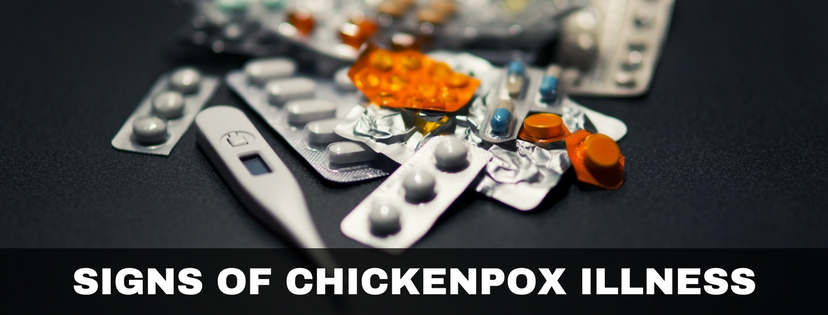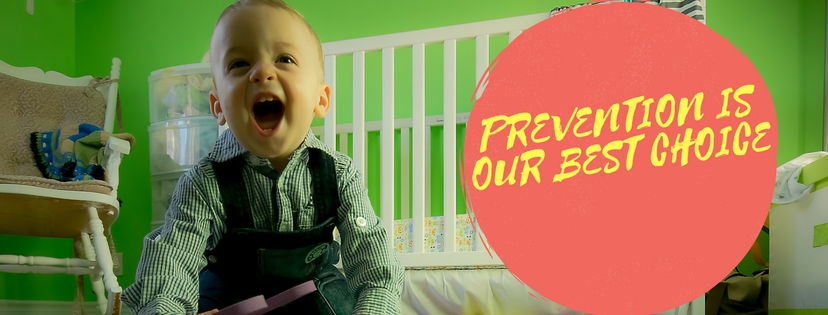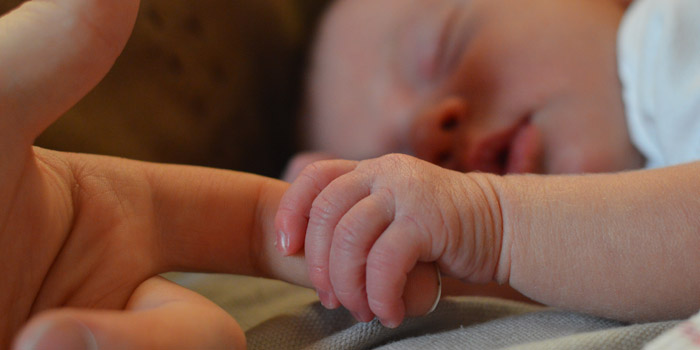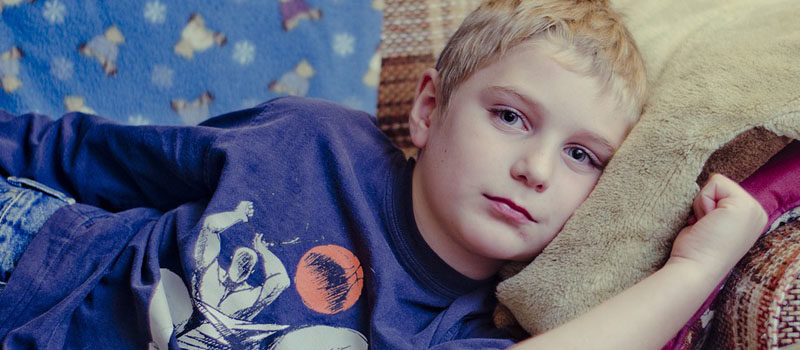
by admdinesh1 | Jan 10, 2018 | blog
Signs of Chickenpox Illness Chickenpox, also called varicella, is a viral illness considered by a very itchy red rash that appears all over the body. A virus causes this condition. It often affects children and is one of the most common infectious diseases of childhood. Most children get chickenpox before the age of 10. Around 9 in 10 people have had it by the age of 15. Chickenpox is rarely fatal, although it is generally more severe in adult men than in women or children. Non-immune pregnant women and those with a curbed immune system are at highest risk of serious complications. Signs or symptoms of Chickenpox Illness Chickenpox may start out seeming like a cold: You might have a stuffy nose, sneezing, and a cough. But after 1 to 2 days, the rash starts, often in bunches of spots on the chest, face and back then spread to the rest of the body, including inside the mouth, eyelids, or genital area. It usually takes 10 to 12 days for symptoms to appear after becoming infected. Other signs and symptoms, which may appear one or two days before the rash, include: · a headache · feeling tired · a general feeling of being unwell · a high temperature (fever) of 38C (100.4F) or over · feeling sick · aching, painful muscles · loss of appetite Once the chickenpox rash appears, it goes through three phases: · Raised pink or red rash, which breaks out over several days · Small watery-filled spots, forming from the raised rash over about one day before breaking and leaking · Skin, which covers...

by admdinesh1 | Jan 8, 2018 | blog
Newborn feeding and nutrition Infancy is the prime time for growth and development of our body, and it is the most confusing time for a new parent. New parents are often found taking contradictory advice as to what should they give to their infant for its healthiest start. As whatever is given to a child during that time has a long-term effect on immune system and the overall aging of your infant. First six months Breast Milk Is Best For Both Mommy And Baby Breast milk should be your child’s sole nutrition source for first 6 months. It helps the baby develop and grow properly and it also gives the infant the power to fight off diseases (such as gastrointestinal and respiratory infections). Healthy eating for mom is important What you eat is what your child will eat as what a mom drink or eat can pass into breast milk. Mothers should: · Limit alcohol, caffeine etc. · Eat organic when possible and avoid most seafood. · Breast milk will be healthy when the mother eats healthy while she is pregnant and breastfeeding. Additional supplements Some babies need extra supplements at times: VITAMIN D: most women are low in vitamin D and the deficiency passes on to their infants. So when pregnant, a woman should test their vitamin D level and if found low they should look for the safest option for their infant. VITAMIN B12: Vegan mom should supplement with vitamin B12 Fluids and hydration: Infants can quickly become dehydrated. Use urine as a color guide: Dark yellow will signify dehydration and clear urine signify potential over dehydration....

by admdinesh1 | Dec 30, 2017 | blog
Prevention Is Our Best Choice “PREVENTION IS OUR BEST CHOICE. IF WE CHOOSE IT, WE LIVE SAFE AND SUCCESSFUL. LET TREATMENT BE OUR LAST OPTION, WHO NEEDS IT.” Malaria is one of the world’s deadliest diseases of the blood and remains one of the top child killers on the planet that is caused by the Plasmodium parasite, which is spread from person to person by a particular type of mosquito. A child dies every 30 seconds from Malaria. There are more than 225 million cases of malaria each year, killing around 1 million people. Malaria is preventable, detectable and treatable. However, it still destroys the life of thousands of people every year. Now, a quick question for you? Don’t you think prevention is better than the cure for the child? The answer is right. At present, medical research and treatment are so costly that often people strongly suggest that we should prevent these diseases from occurring instead of treating them from happening. Children are the first vulnerable group than adults or old that fall easily to malaria than the rest. The easiest way to prevent the possibility of contracting malaria is to stay clear of malaria areas. Simple common indoor duties of our daily life, which can prevent these diseases instead of treating them from happening – Spray mosquito meshes on the bathroom, toilet and indoor drains. Keep your washroom accessories dry. Let sunlight spread your washroom daily, if possible. Do not store any stagnant water in your house or let your child play near dirty places in the playground or garden where mosquitoes can breed, spray...

by admdinesh1 | Dec 28, 2017 | blog
Routine Care for Your Newborn Baby As a new parent no doubt you feel overwhelmed and out of sorts. Babies are often resistant to a routine, their routine often is reversed and it makes your life a complete chaos. Here are some pointers that can help you establish a peaceful and effective routine for you and your baby. Routine Care for Your Newborn Baby is as follows : 1) Watch and learn Babies are often moody but give plenty of cues for you to pick up and establish a routine which will work for both you and your child. These cues will be your signal to prevent meltdowns from your baby. 2) Setting a bedtime for your baby Bedtime for baby? Sounds silly right, However many doctors suggest to ‘Act differently during the day than night.’ Talk loudly, take walks during the day but anytime after your bedtime if your baby wakes to upkeep your activities, voice, and lights low. Feed and put your baby to sleep slowly but gradually your baby will understand nighttime is for sleeping. 3) Bath time Bathing relieves us of our days stress it acts the same for your baby. Prepare everything for your baby’s bath, test the water to make sure it isn’t too hot, lay down a towel to wrap your child in the bath. After all, preparation is done, undress your baby and give him a nice stress relieving bath. Quickly wrap a towel around your child and pick him up securely after you are done bathing him. 4) Naptime secrets Babies develop a sleeping pattern usually around 3 months mark,...

by admdinesh1 | Dec 20, 2017 | blog
How To Take Care of Low Birth Weight Babies In this article, you will know about how to take care of low birth weight babies. Nothing will make happier than a feeling of being a Mother in women life. Everyone is waiting for this moment to happen in their life. But taking care of a baby especially a low birth weight baby is not an easy task. A baby who is less than 2500 grams (2.5 kgs) is described as Low Birth Weight Baby. If you are one among these, don’t panic. You are not only who is in this situation but a lot of others facing the same one. It is important to take care of your newborn and here are few tips for you to help you out in this situation. Tips on How To Take Care of Low Birth Weight Babies: Breastfeeding We all know mother milk is best for their children. Feed your child on the regular interval to help him in gaining his weight. If a baby is unable to suck then squeeze your breast gently and drop milk on baby lips gently to encourage him for sucking. If still, this method is not working then use cup feeding. Squeeze milk into a cup and feed your baby with a spoon in first few days of baby birth. Keep Your Baby Warm It’s very important that you keep your baby warm. Also, make sure that bed should be cozy and warm. Dress your baby in lightweight pajamas and use the certified blanket. Don’t dress your baby in more than one layer. Keep in mind of...

by admdinesh1 | Dec 13, 2017 | blog
How to Save Your Children from Chronic Disease This article is all about how to save your children from chronic disease. Talking about chronic diseases may raise many questions in our mind. We all know what chronic diseases are. Due to today’s lifestyle and environment, many of us are exposed to these diseases. Even though we are provided with modern medical facilities, there is no exception for chronic diseases. In this world where even the adults can’t withstand this completely messed up scenario, children are no exception. Children are fragile beings, we should handle with care. A Child’s health and happiness is a parent’s first and foremost wish. Every child needs to be pampered, loved and provided with a healthy life. Now let’s look into How to save your Children from Chronic Disease and their Safety Measures Asthma Asthma is mainly caused due to certain factors like underweight during birth or overweight, due to high intake of antibiotics, exposure to the violent atmosphere, parents with depression and some other genetic reasons. Its symptoms include chest tightening, coughing, sneezing, difficulty in breathing etc. But this can be controlled to an extent through proper medications and avoid the exposure to pollutant air, cigarette smoke, pollen grains, allergens etc. Cystic fibrosis It is a genetic disease which affects not only lungs but also liver, kidney-pancreas. Its symptoms include coughing, poor growth, difficulty in breathing etc. Pancreatic enzyme replacement, lung transplantation, antibiotic intake are some of the treatment given for this disease. But still, it cannot be cured when the stage changes. Yet treatment at the early stage is preferable (parental stage). Obesity Obesity...







